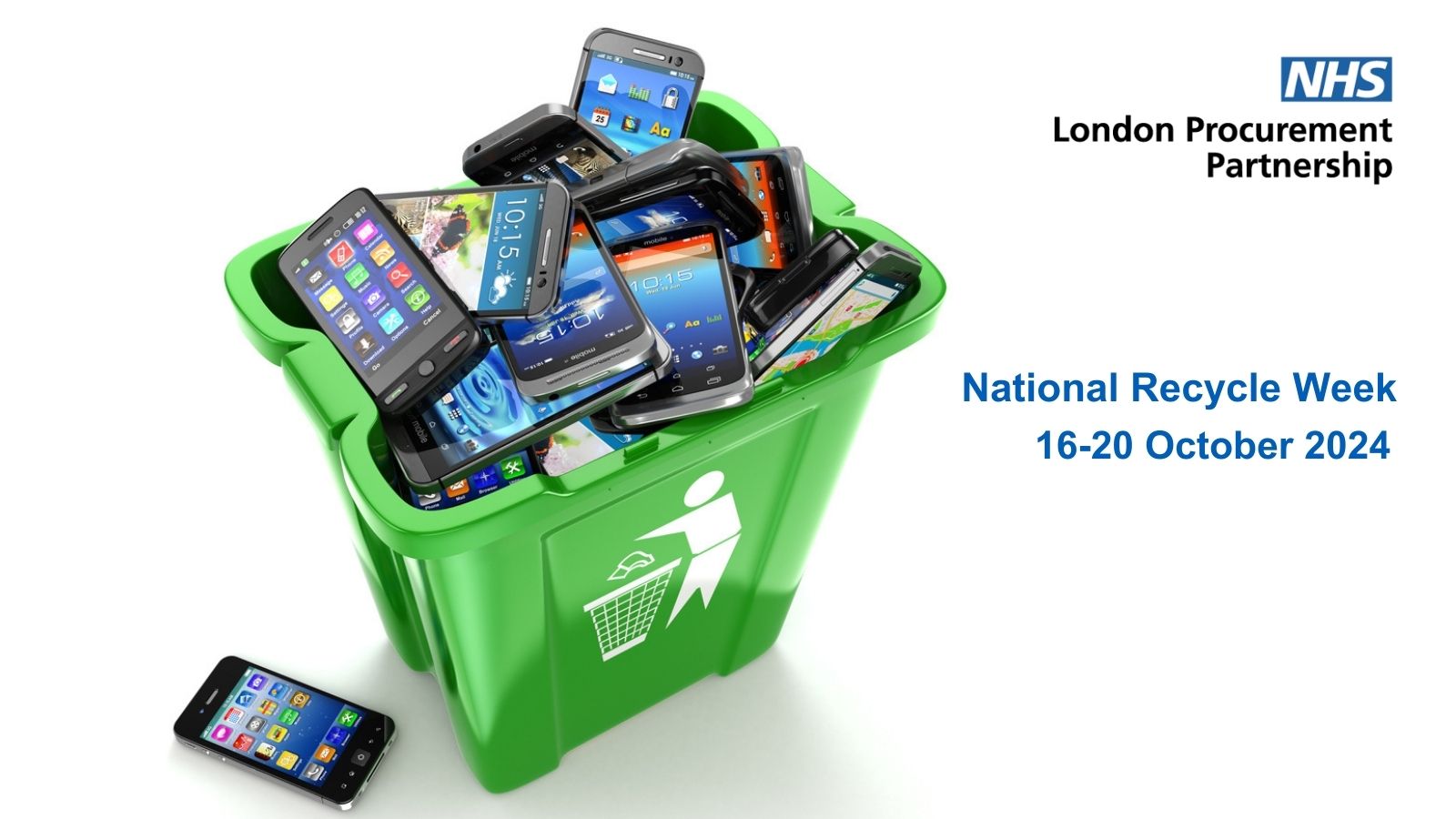
National Recycle Week - rescuing mobile phones responsibly with NHS LPP
Recycle Week 2024 is here and across the UK, communities, businesses, and local authorities are joining forces to raise awareness about waste reduction and the environmental benefits of recycling. Running from 14 -20 October, this year's theme, 'Rescue Me,' emphasises the need to save recyclable items from ending up in landfill by either giving them a second life or disposing of them responsibly.
NHS LPP has partnered with NHS England to offer funded mobile phone audits, helping trusts identify surplus and redundant devices. So far, over 140 trusts have participated. We have identified savings on phone bills from inactive devices alone are at £2.25m nationally. But with so many redundant devices, the question remains: what should be done with them?
Why mobile phone re-use and recycling matters
E- waste is a growing waste stream, particularly here in the UK, where we are predicted to become the biggest contributor to E-waste per capita in Europe. In relation to mobile phones, globally an estimated 5.3bn phones became E-waste in 2022 with only a small fraction disposed of properly.
According to estimates from environmental groups, more than 40 million unused mobile phones are currently sitting in UK homes, a fraction of which have been identified by NHS LPP’s audits. When these devices end up in landfills, they contribute to toxic waste, as smartphones contain harmful chemicals like lead and mercury that can leak into soil and water.
Mobile phones also contain a range of valuable resources such as precious metals, rare earths and other materials that require significant resource to extract. This extraction can be avoided by either keeping the phone in service or recycling the device. In fact, research conducted by ADEME (the French environment and energy management agency) estimates that reusing, reselling or donating a device saves 84.4kg CO2e rather than purchasing a new one.
What you can do to help reduce our impact
The benefits of keeping devices out of landfill are clear, both financially and environmentally. The good news is that we can do something to reduce our impact:
- Aim to extend the life of your phone through activity like efficient charging, using protective cases, utilising phone repair shops and considering phones that can be easily repaired such as Fairphone
- If replacing a working phone, consider selling, trading in or donating it for refurbishment, re-sale or recycling.
- Check if your network provider offers recycling options.
- Don’t leave it in your drawer or dispose of it in general waste; instead look for WEEE recycling points
How NHS LPP phone audits are helping NHS trusts achieve savings and sustainability and social value benefits
Data from the first 100 NHS trusts to audit their mobile phones, identified potentially over 42,000 redundant devices. Of these, around half are estimated to be in a good enough state to redeploy to other employees. By collecting and reusing these devices the NHS could save over £5m and nearly 1.8million kg CO2e compared to purchasing new phones. Along with our partners we have also identified routes to donate, resell and recycle devices, reducing E- waste and trust carbon footprints and providing social value.
Get in touch for more information
If you need information on what you can do with your audit results or you’ve not yet arranged your trust’s mobile phone audit, please get in touch with us this national recycling week at gstt.cds@nhs.net.
